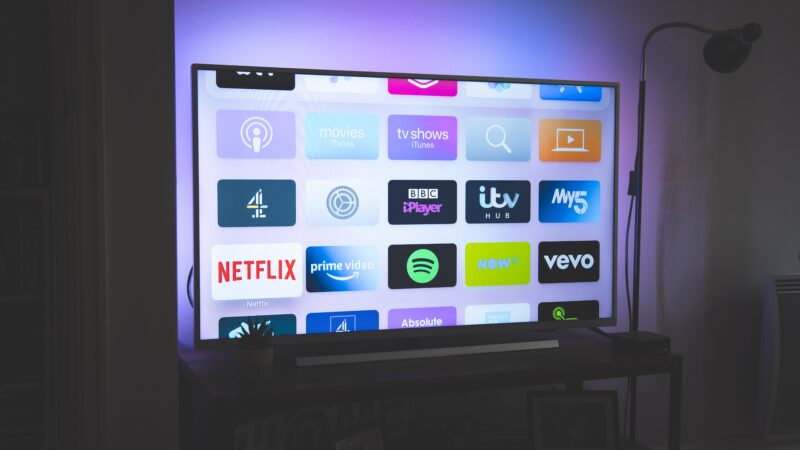A Libertarian Case Against Immigration
Immigration is a massive issue within the UK. Many libertarian and neoliberal think tanks seem to be out of touch with what the ordinary man thinks about immigration as they advocate for a more liberalised immigration system and even open borders. This has given the term liberal a rotten taste for many Britons on the topic of immigration. A notorious example of this is Sam Bowman, a senior fellow of the neoliberal institution The Adam Smith Institute, who tweeted:
“I also favour huge amounts of immigration from unskilled workers from poor countries on the grounds that if it improves their welfare, including if it reduces the welfare of Britons, e.g. through higher crime.”
This, of course, comes off as insensitive and patronising. It is a real concern of the British public, both for economic and cultural reasons, to want to control our borders. This concern should not be dismissed by neoliberals who dismiss the negatives of immigration. In fact, those who claim to be champions of freedom should also take into consideration the freedom of those already inhibiting the country and their property rights.
Those who advocate for “freedom of movement” forget the enormous amounts of benefits that immigrants receive once they enter the country. From the NHS, housing benefits, universal credit, and roads: there are an enormous amount of entitlements that immigrants receive, regardless of whether they pay tax. Even Milton Friedman observed that “you cannot simultaneously have free immigration and the welfare state”. Shouldn’t the British taxpayer be free from being forced to subsidise the lifestyle of those who enter the country?
Currently, the government is trying to implant an asylum centre for up to 1,500 in the small village in Yorkshire, Linton on Ouse. This would severely change the culture of a village which has a population of about 700. The neoliberal approach would be to allow them in, after all freedom of movement is a human right! This mass importation which would massively change the environment is disrespectful to the locals. The solution which respects the rights and concerns of the native population is to decentralise decision making to the lowest level possible. It’s easy for Westminster bureaucrats to assign a thousand men to a small village without acknowledging the consequences. The residents of Linton on Ouse should have their voices heard.
In his book Against the Left, Lew Rockwell discusses how Switzerland’s immigration policy before joining the European Union could be shown as an interesting example of decentralising immigration policy:
“In Switzerland, localities decided on immigration, and immigrants or their employers had to pay to admit a prospective migrant. In this way, residents could better ensure that their communities would be populated by people who would add value and who would not stick them with the bill for a laundry list of “benefits.””
The notion of “freedom of movement” disregards property rights. An individual cannot come into your home without invitation. As Hans Hermann Hoppe noted:
“No one has a right to move to a place already occupied by somebody else, unless he has been invited by a present occupant. And if all places are already occupied, all migration is migration by invitation only. A right to “free” immigration exists only for virgin country, for the open frontier.”
Furthermore, even though libertarians argue that public property has been appropriated illegitimately, it does not mean that the property is unowned and a free for all. Hoppe continues:
“It has been funded through local, regional, national or federal tax payments, and it is the payers of these taxes, then, and no one else, who are the legitimate owners of all public property. They cannot exercise their right – that right has been arrogated by the State – but they are the legitimate owners.”
In his article, Nations by Consent, Murray Rothbard sets out his argument against open borders even within a stateless society:
“On rethinking immigration on the basis of the anarcho-capitalist model, it became clear to me that a totally privatized country would not have “open borders” at all. If every piece of land in a country were owned by some person, group, or corporation, this would mean that no immigrant could enter there unless invited to enter and allowed to rent, or purchase, property. A totally privatized country would be as “closed” as the particular inhabitants and property owners desire.”
Having controlled borders is not antithetical towards libertarianism. Those who actually favour liberty should value freedom of association and property rights rather than the false leftist notion of “freedom of movement” that tarnishes the name of liberalism and freedom. The Westminster liberals should stop sneering at the British public for their concerns over immigration and join them in the fight for freedom.





Conservatives Against Equality
The Trojan horse has made its way inside the Conservative Party with an egalitarian agenda it will stop at nothing to implement, including rooting out any trace of actual right-wing policy. However, the enemy within has only been given power by the fact that the Conservatives themselves have no clue what they stand, giving space for leftist ideology to creep in through these infiltrators.
The Conservatives’ abandonment of conservative principles in favour of identity-driven equality can be exemplified through the Equalities Minister speaking at an LGBT event of “Celebrating 50 Years of Pride” with the new, even more hideous pride flag behind him. For one, there should be no such thing as a “Minister of Equalities” (as there also shouldn’t be a “Minister for Women and Equality”). These positions are divisive and identity driven. Secondly, a Conservative MP should not be proudly endorsing a flag that represents gender ideology which encourages children to go through harmful surgery in order to “change gender” and for women to have their toilets and changing rooms infringed upon by perverted males who are into autogynephilia.
Then there are the Conservative Members who are more concerned about Laurence Fox posting an edgy tweet making fun of gender ideologues than the actual gender ideologues themselves. They seem to be silent when the left captures our institutions and calls for destructive and disturbing policies. However, when a Conservative decides to stand up for conservativism in the slightest, they go ballistic. While they claim to be “economically conservative”, they spend all their time arguing with right wingers about social issues, lecturing them that there’s “bigger fish to fry” (while they themselves barely even discuss or talk about these “bigger fish”). Who’s going to tell them that they are participating in the culture war they claim to hate by trying to silence any conservative who stands up for our culture? It would be better if these crypto leftists left the party and joined the Liberal Democrats or the Labour Party.
Conservatives should be against equality, both in the economic and social terms. This doesn’t mean you should be cruel to people. You can argue for better treatment of groups without having to advocate for equality. I don’t treat people nicely based on whether they’re equal to me. I don’t treat people of different races or sexualities the same because we’re equal, I treat them the same because I believe it’s nonsensical to base my treatment of someone on irrelevant characteristics. Furthermore, we shouldn’t treat people equally. A ten-year-old should treat an adult stranger different to the new kid in the playground. A teacher shouldn’t give equal attention to the kid who doesn’t need help and the kid who does. These are both forms of discrimination. We discriminate every day.
However, leftism has convinced the public that “discrimination” is represented by its worse examples and “equality” on its best examples. However, doing things for the sake of equality is stupid. We should embrace that everyone is unique with both skills and weaknesses. We should promote people’s unique skills through the free market. Capitalism is a system that that discourages people discriminating for reasons that do not impact people’s skills (for example, the economist Thomas Sowell has done incredible work to show how racism is unprofitable for businesses). Yet capitalist systems tend to be the most unequal in terms of wealth and income. You can favour social progress and be against unfair treatment without favouring equality.
Eammon Butler states in his book Economic Equality:
The universal case for equality is that, in all important respects, human beings are alike. They have a similar identity, which implies that they are essentially equal and should be treated equally. There are problems with this suggestion. For a start, we cannot infer equality from identity. The numbers 3 and 5 share the identity that they are both integers. But they are not equal; and nor can we make them so. Though people speak glibly of humans being “born equal”, the plain reality is that they are not. They differ naturally in many ways – physically, intellectually and morally.
If the Conservatives want to win, they need to show conviction and know what they believe in. Equality is antithetical towards right wing ideology, and we should not be ashamed of this fact. We shouldn’t have a party where MPs can easily switch between “the left wing” and “the right wing” parties. To the people in the party who are more concerned with the right than they are the left, we should politely guide them to the door. No Blairites please!
Picture Credit